We Care
Bio Gas
A Sustainable Energy Solution with Multiple Benefits
When considering a poultry farm, the initial associations revolve around hygiene and spotlessness. Our parent flock yields approximately 2.5 tonnes of litter daily. This accumulation is promptly cleared, thereby enhancing the chickens’ living conditions and maintaining a wholesome shed environment. Particularly significant is the mitigation of unpleasant odors and the prevention of fly infestations that often accompany exposed chicken litter, consequently thwarting the onset of diseases.
Each day, we generate six hours of clean electricity, substantially curbing the necessity for diesel generators during power outages. Furthermore, the biogas energy undergoes a purification process that eliminates undesirable gases, rendering it ideal for electricity generation without releasing harmful emissions into the atmosphere. Ultimately, the resulting byproduct, biogas slurry, finds purpose as organic fertilizer in our own land’s cultivation, fostering chemical-free yield.
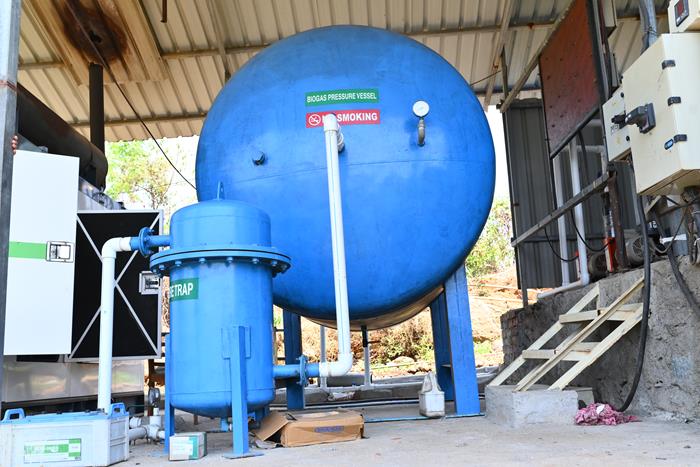
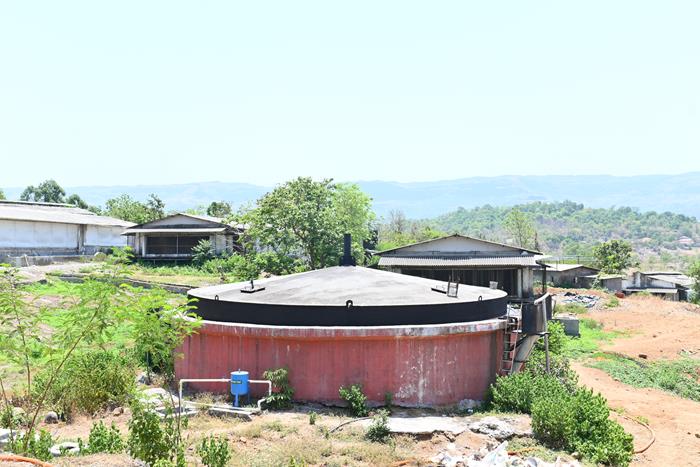
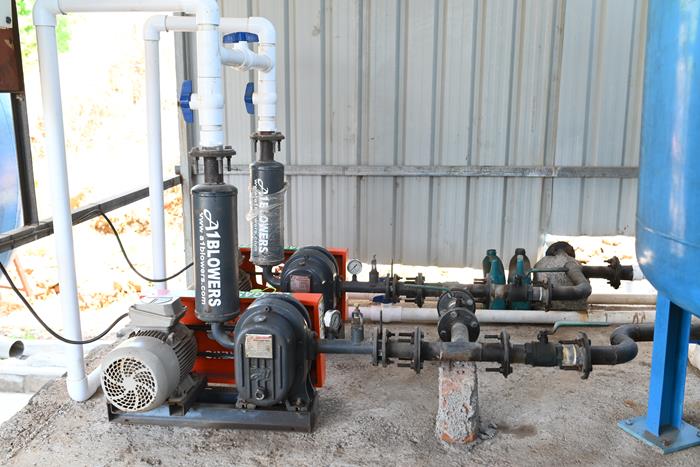
What is Biogas and why Biogas
Biogas represents a renewable and environmentally friendly energy source. The gas produced through bio-digestion is free of pollutants and actively reduces greenhouse gas emissions, thereby mitigating the greenhouse effect. This process involves no combustion, ensuring that no greenhouse gases are released into the atmosphere. Consequently, utilizing waste-derived gas for energy serves as a valuable strategy to combat global warming. Biogas plants play a significant role in minimizing the greenhouse effect by capturing methane emissions, an environmentally harmful gas, and converting it into fuel.
One of the key advantages of biogas is its ability to lessen dependence on fossil fuels like oil and coal. Unlike other forms of renewable energy, the process of generating biogas is natural and does not demand additional energy input. Moreover, the raw materials used in biogas production, such as manure, food scraps, and crop residue, are consistently renewable as plants continue to grow.
An enriching outcome of biogas generation is organic digestate, a valuable supplement or alternative to chemical fertilizers. The discharge from the digester serves to boost plant growth and resilience against diseases, unlike commercial fertilizers which can contain harmful chemicals leading to toxic effects, including food poisoning.
Biogas generators have the positive effect of relieving women and children from the arduous task of collecting firewood. This affords them more time for essential activities like cooking and cleaning. Equally significant, cooking with biogas stoves, as opposed to open fires, safeguards families from exposure to indoor smoke, consequently reducing the risk of respiratory diseases. We take pride in highlighting that our employees utilize raw biogas energy for their daily cooking needs.
Water Harvesting
Situated on the premises, the farm features its dedicated water reservoir, capable of holding 1.2 million liters. Rainwater, gathered meticulously, undergoes an initial treatment within our exclusive Reverse Osmosis (RO) facility, guaranteeing the elimination of waterborne ailments through meticulous filtration.
In a quest for enhanced self-sufficiency, the farm taps into its underground water source via a well, boasting a capacity of around 500,000 liters. Taking steps towards elevating the water table across the expanse of both the farmland and neighboring communities, a concerted effort is made to accumulate water, facilitating its gradual absorption into the ground.
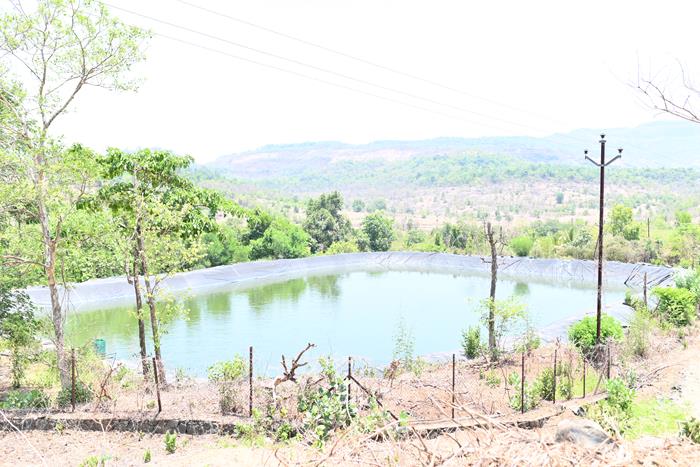
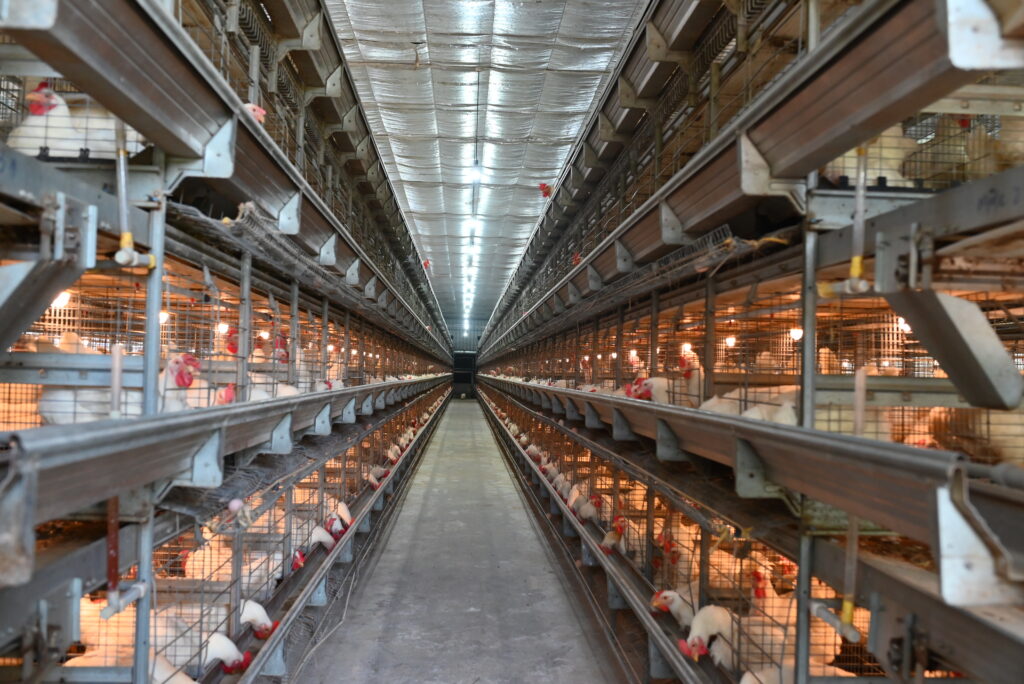
EC Sheds
Given that our location resides within the Konkan region, the prevailing high humidity poses challenges for our parent breeders, leading to elevated mortality rates during the summer months. To counteract this issue, a strategic transformation of all our layer sheds into environmentally controlled enclosures has been executed. These sheds are thoughtfully designed with efficient ventilation systems, incorporating exhaust fans on one side and cooling pads on the opposite end. The cooling pads are meticulously saturated with recycled water, ensuring a consistently cool environment within the sheds.
Our priority remains excellent ventilation, maintaining the internal temperature within the range of 25 to 30 degrees Celsius, effectively averting the release of ammonia emissions.
